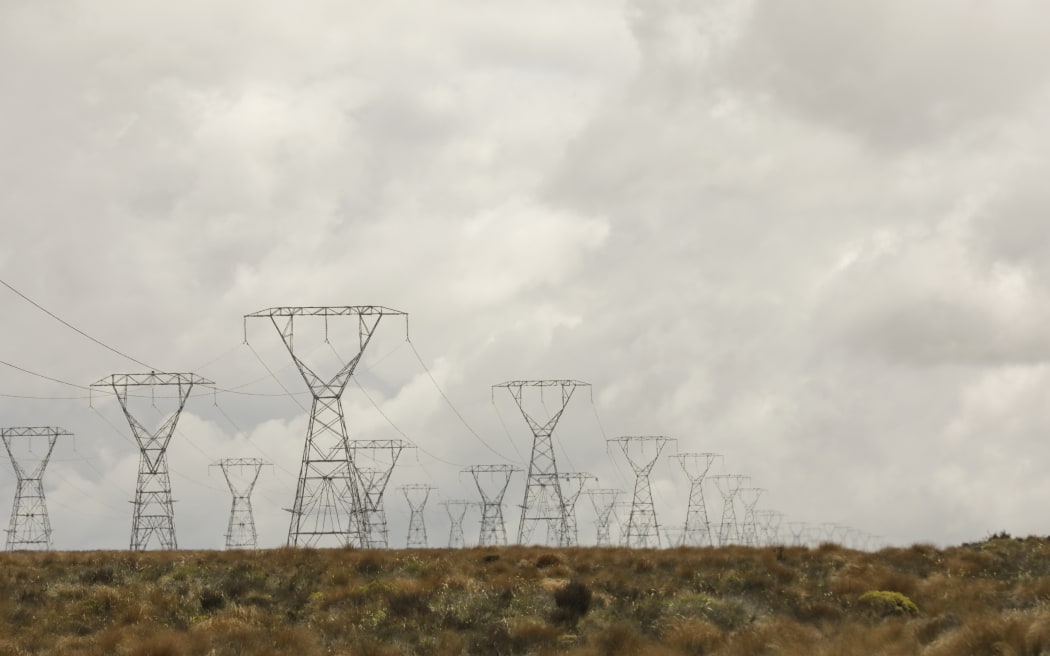
The Consumer Advocacy Council says at a time when thousands of households are struggling to heat their homes, the big four power companies made a collective $2.7 billion in operating profits in the past financial year. Photo: RNZ / Rebekah Parsons-King
Big power companies have been paying excessive dividends to shareholders for the past decade at the expense of consumers, an advocacy group says.
New research from First Union, 350 Aotearoa and the Council of Trade Unions said power companies paid out $10.8 billion in dividends over the last decade but invested $4.5b in new power projects.
The latest Generating Scarcity report said there was next to no growth in national generating capacity.
Consumer Advocacy Council chairperson Deborah Hart said generator-retailers or gentailers should be boosting renewable developments and keeping bills affordable.
"It really does make for disturbing reading," Hart said.
"We were very concerned when we saw the numbers that are coming out about the dividends being paid to shareholders in our largest electricity companies."
Meridian, Contact, Genesis and Mercury made a collective $2.7b in operating profits in the past financial year.
Hart said these profits came at a time when over 100,000 households were struggling to heat their homes.
"The report shows that gentailers' priorities are all wrong," she said.
"How can looking after shareholders in this way be fair when people are struggling to pay bills and when we have an urgent need in a climate crisis to decarbonise electricity production?
"We need to accelerate investment in renewable energy and the gentailers really need to concentrate on that."
According to the report's authors, the electricity industry should serve as a warning for other areas of the economy in which privatisation is being promoted as an option.
While Hart said the evidence continued to mount up that the market model for electricity was not working well for small business, residential consumers or the planet.
"Gentailers make strong statements around their plans to invest in renewables, but clearly this analysis shows there is a lot of fat in their bank accounts which means they could do far more to address the urgent challenges we have," she said.
"Something must change because the market is failing to deliver what consumers want and that is affordable, sustainable, and reliable electricity."
"We welcome the government's commitment to accelerate investment in renewable energy and we look forward to its approach to ensuring the industry delivers for small businesses and residential consumers, and not just shareholders," Hart said.
The Electricity Retailers' Association of New Zealand (ERANZ) responded to the report's finding.
ERANZ chief executive Bridget Abernethy said the electricity market was delivering for Kiwis with its members ploughing more than $6b into renewable investments by 2030.
To achieve net zero emissions by 2050 requires more large investments in renewables, and that means companies need healthy balance sheets.
"This does not mean excessive dividends," she said.
"Just this month, Genesis Energy amended its dividend policy down, to help pay for $1.1b in renewable projects.
"While ERANZ members are delivering on the energy transition, they're also working hard to minimise the financial impact on consumers."





